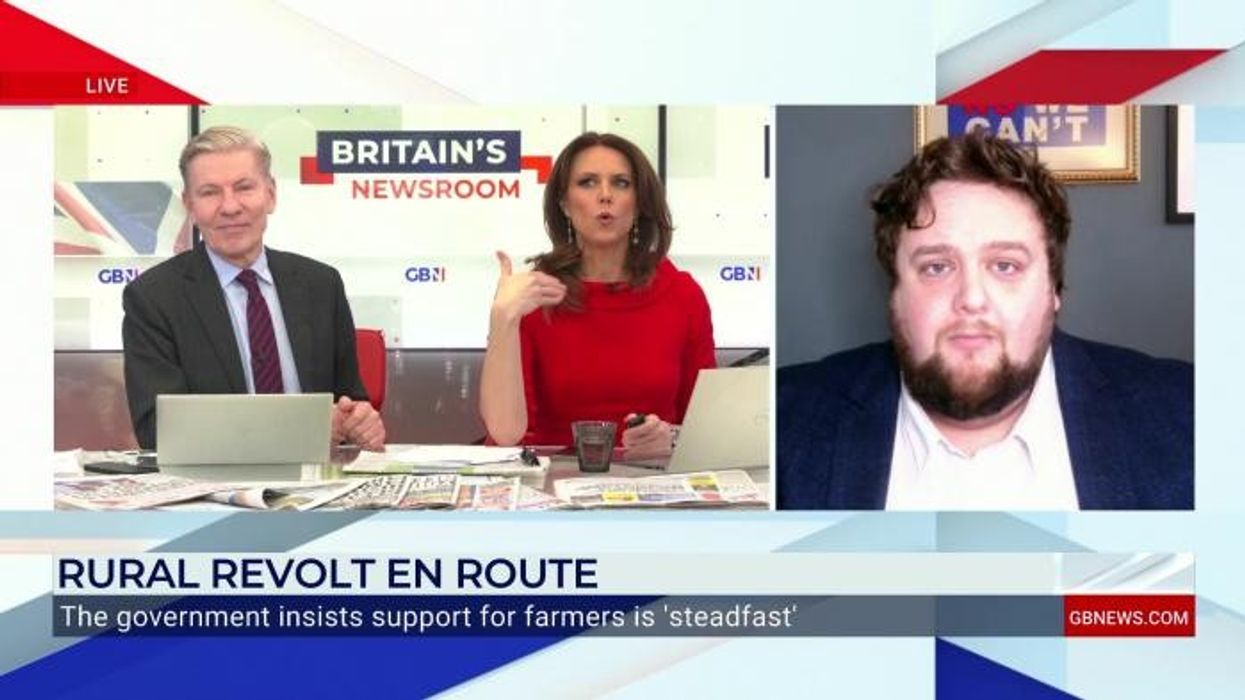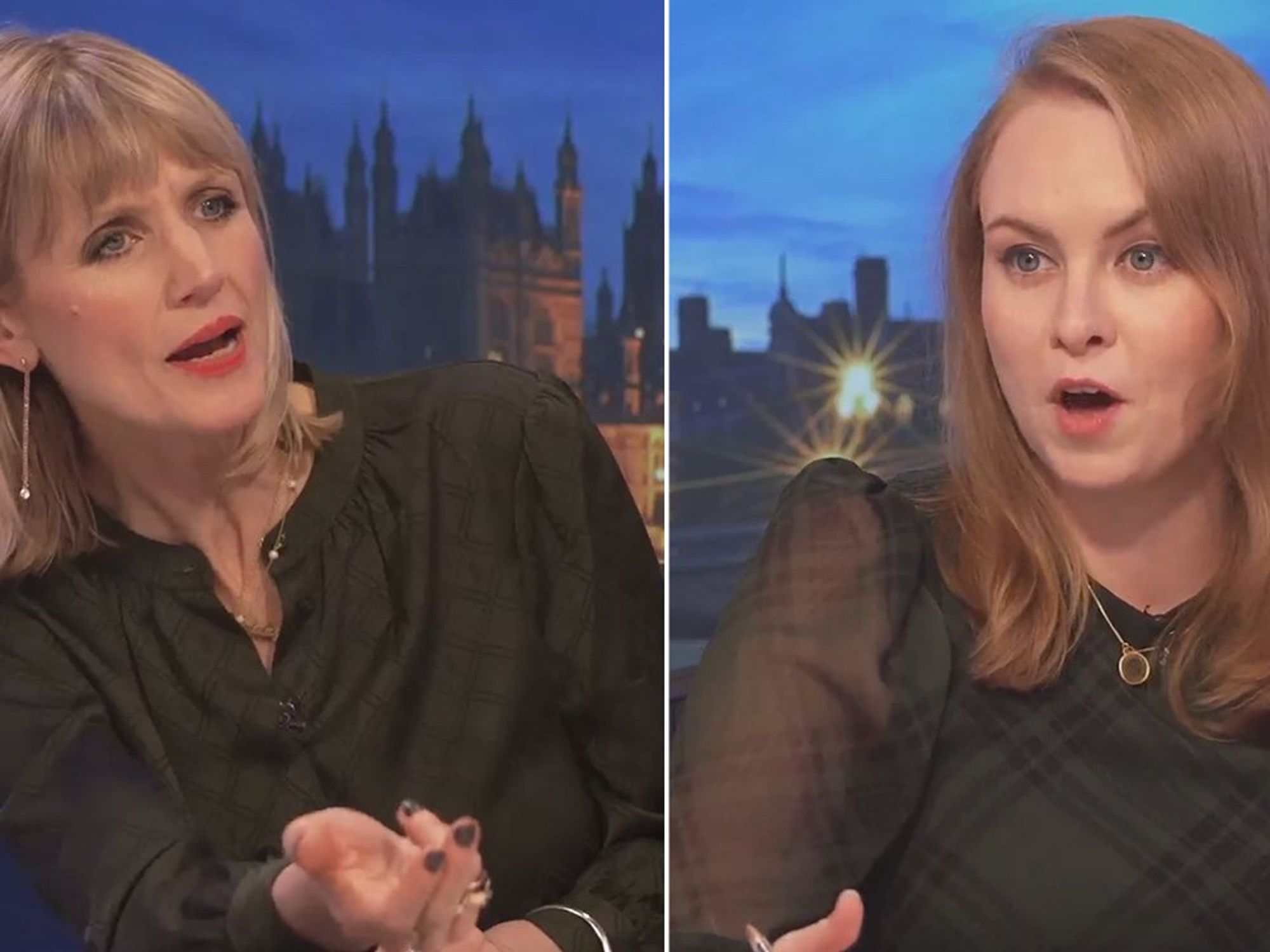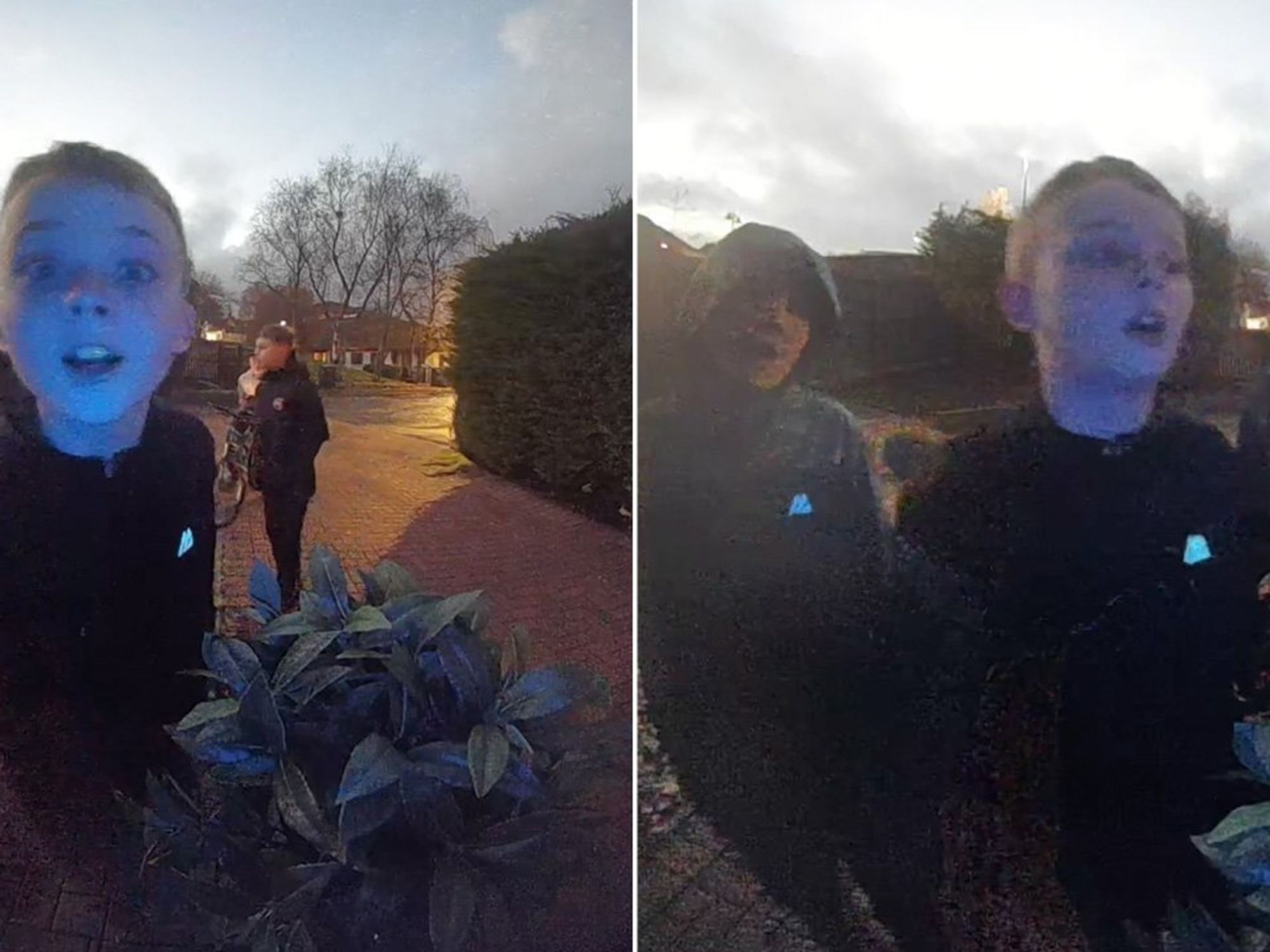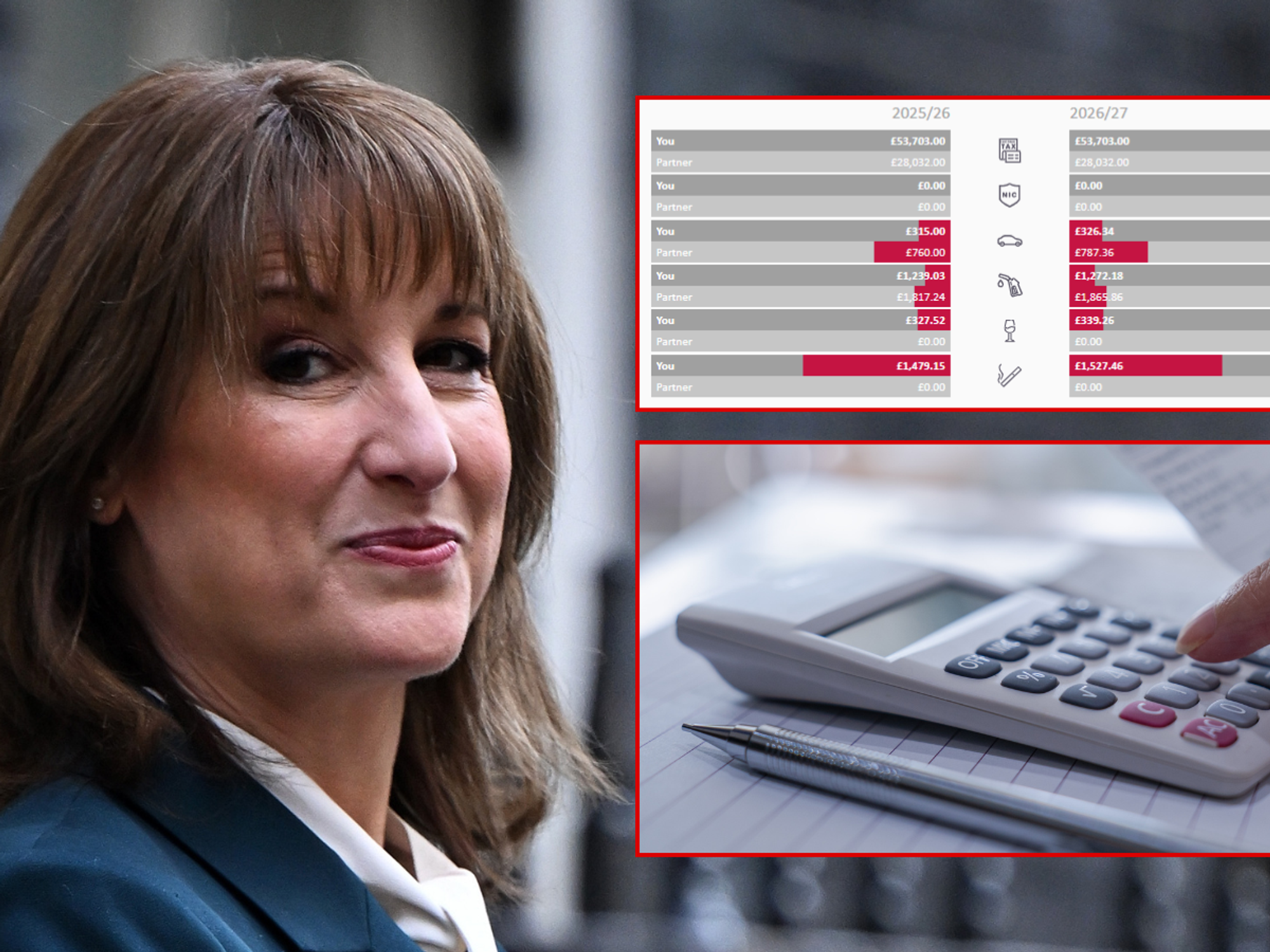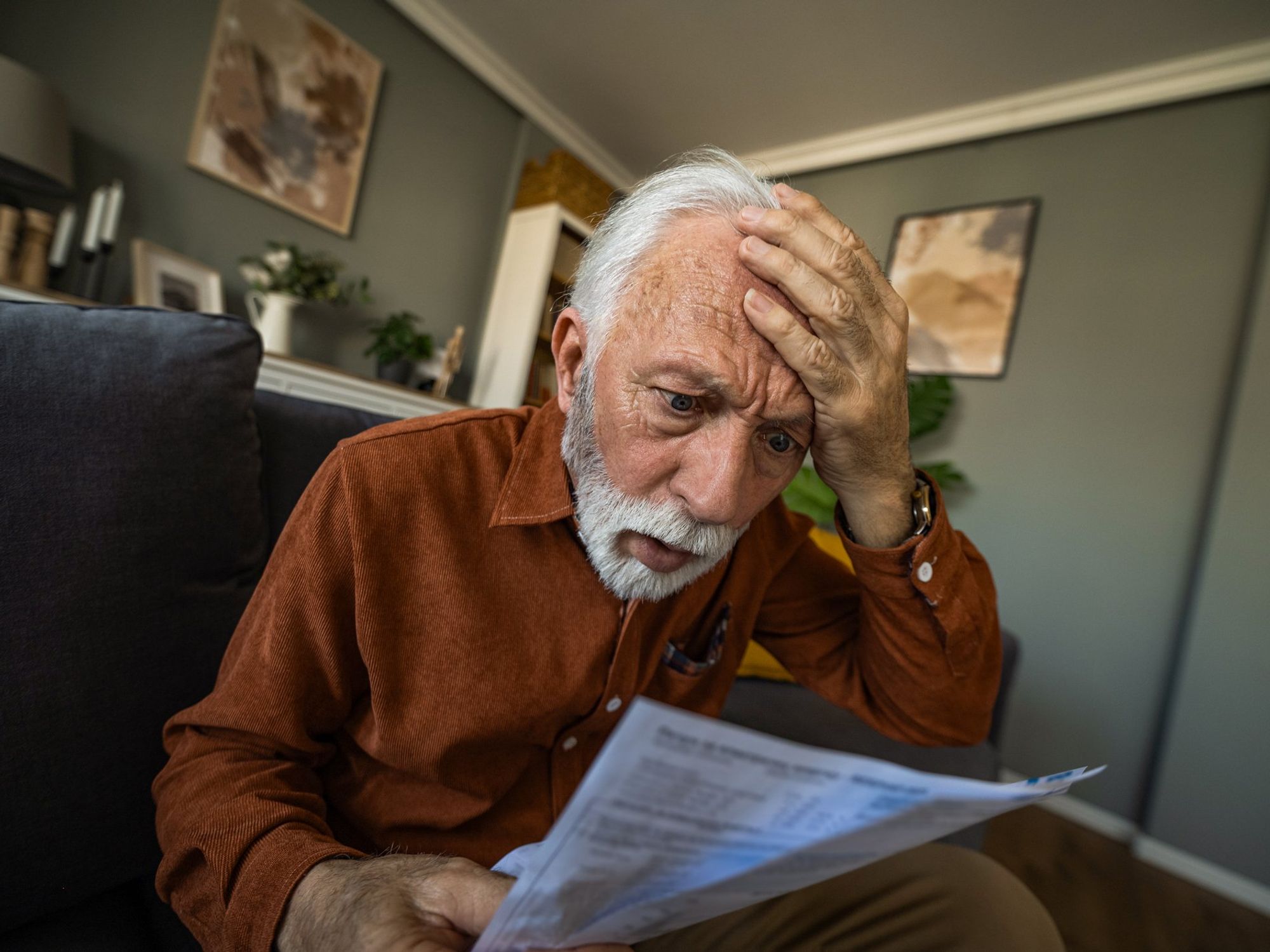Inheritance tax warning: Labour told to scrap 'hideous grief tax' as surging number of families forced to pay

The number of families affected is forecast to increase to one in eight
Don't Miss
Most Read
Thousands more grieving families are being hit with inheritance tax in what Reform UK’s Deputy Leader, Richard Tice, has branded a “hideous grief tax”, new statistics reveal.
Research conducted exclusively for GB News by the Taxpayers' Alliance uncovered a stark regional spike in estates paying inheritance tax (IHT), with Yorkshire and the Humber enduring a 25.9 per cent rise in just two years.
In total, over 1,000 estates are being dragged into the IHT net in many areas, despite lower property values on average.
**ARE YOU READING THIS ON OUR APP? DOWNLOAD NOW FOR THE BEST GB NEWS EXPERIENCE**
The East Midlands saw a whopping 21.5 per cent jump in the number of liable estates from 2020/21 to 2022/23, followed by a 20 per cent rise in the North-West and an 18.8 per cent increase in the North-East. Meanwhile, the total value collected from IHT surged in the West Midlands (up 8 per cent ), London (up 7 per cent ), and the North-East (up 11 per cent ), fueling criticism that IHT now unfairly targets average households, not just the super-rich.
Deputy Leader of Reform UK, Richard Tice, said: “Inheritance tax is a hideous grief tax that punishes hard work, risk-taking and wealth creation.
“Now, in a transparent attempt to fill their £50billion fiscal black hole, we learn that the Labour Government are using this devious form of double taxation to tax ordinary Brits even more.
“Reform UK would abolish the death tax and put more money in the pockets of families.”
LATEST DEVELOPMENTS: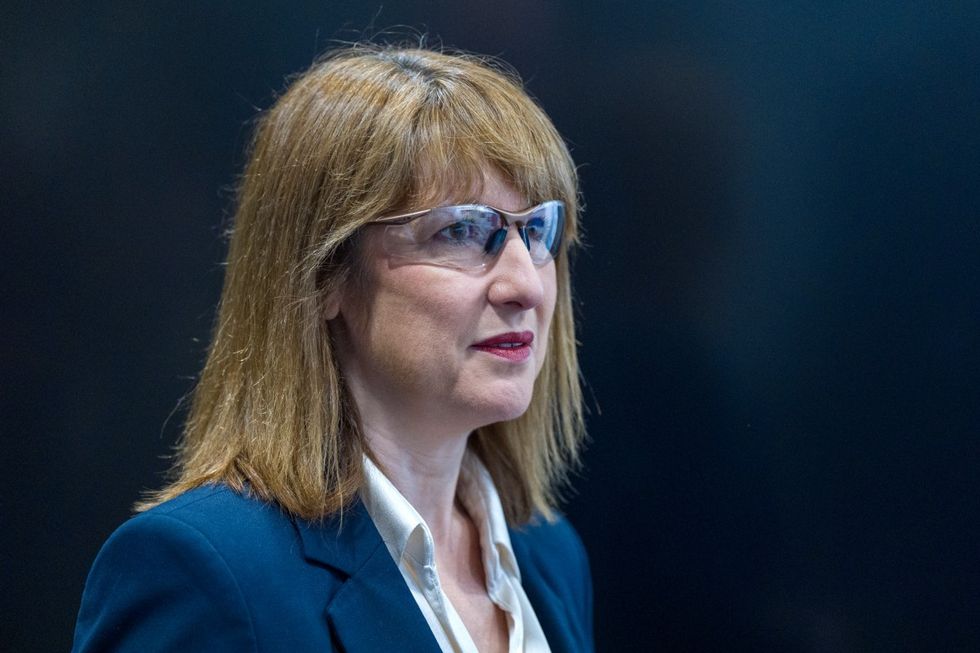
Reform UK’s Deputy Leader, Richard Tice, has branded it a 'hideous grief tax'
|PA
With the nil-rate band frozen at £325,000 since 2009, ordinary homes, particularly in the South and Midlands, are increasingly pushing families over the limits.
The East of England saw a 19.09 per cent increase in estates paying IHT, and even less affluent regions traditionally not affected, such as the North-East, are now seeing double-digit rises.
Investigations campaign manager at the Taxpayers' Alliance, Joanna Marchong, said: “Taxpayers are suffering year after year as frozen inheritance tax thresholds and rising house prices are forcing more grieving families to pay the death duty.
“The tax, born of envy and contempt, will continue to have less effect on the ultra-wealthy while hammering those who have worked hard and simply want to pass something on to the next generation. The answer is clear; inheritance tax must be scrapped.”
 Region by region, which areas pays the most inheritance tax | TaxPayers' Alliance
Region by region, which areas pays the most inheritance tax | TaxPayers' Alliance
Former director of the Institute for Fiscal Studies, Paul Johnson, acknowledged the growing number of affected estates: “It remains the case that only a small minority of estates are liable for IHT.
“However, the numbers are growing, not least because of a long-term policy embraced by both this Government and the last, which has seen the tax-free threshold frozen.
“With a frozen threshold and higher levels of wealth, especially higher house values, more estates will continue to be dragged into IHT.”
Official HMRC statistics, published by the wealth management firm Evelyn Partners, show that over 31,500 estates paid inheritance tax in 2022–23, a 13 per cent increase in just a single year, raising £6.7billion for the Treasury.
The rapid increase is attributed to frozen tax thresholds and a jump in property values, particularly outside of London and the South-East.
Meanwhile, the Institute for Fiscal Studies (IFS) warns that IHT receipts could exceed more than £15billion by 2032–33.
The proportion of families affected is forecast to increase to one in eight, more than triple today’s levels, unless the thresholds are updated in line with inflation numbers and house prices.
Former Chancellor of the Exchequer, Lord Norman Lamont, warned: “Inflation is the Government’s secret tax collector for both inheritance tax and income tax.
“Inflation combined with frozen thresholds brings more families into the tax net.
“It makes it increasingly difficult for parents to help their children when the state is taking away so much of their hard-earned savings.”
Kwasi Kwarteng, also a former Chancellor, added: “Labour is addicted to high tax and low growth. We must change course.”
“It’s a big surge. Kills aspiration and places stress on so many.”
 Inheritance tax can be reduced by giving gifts - but rules do apply | GETTY
Inheritance tax can be reduced by giving gifts - but rules do apply | GETTY
Shadow Chancellor of the Exchequer, Sir Mel Stride, said: “Labour is pushing the tax burden to its highest in history. That is bad for our economy and punishes those who have worked hard and saved.
“Their tax on family farms and family businesses will devastate families and lead to businesses folding or stopping investment. Worse still – we know Rachel Reeves is planning yet more tax rises for her autumn budget.
“We cannot tax our way to growth.”
The author of the report, the Taxpayers' Alliance, points out that the hike is particularly sharp in regions that typically have lower average property values, underscoring how the current IHT arrangement no longer just affects wealthy people.
Many estates are pushed over the threshold due to rising house prices alone, with little to no liquidity to pay the tax without selling family homes that have often belonged to multiple generations.
This follows a decade of fiscal drag, where thresholds have stayed static while asset prices, particularly houses, have skyrocketed.
In June 2024, a review by the Office of Tax Simplification – now under the Treasury’s management – found that many estates liable for IHT hold little in liquid asset value, leading to forced property sales or delayed probate actions.
Meanwhile, a study by the London School of Economics (LSE) warned that freezing thresholds disproportionately affect those outside London, where rising property values outpace wage growth.
But not everyone is calling for IHT reform. Barry Gardiner, Labour MP for Brent West, defended the tax: “Paying tax is one of the marks of a civilised society.
“Fewer than 5 per cent of those who die in the UK each year have estates that are subject to inheritance tax.
“So, it is a tax that only affects the very wealthiest.
“It is right that those with the greatest capacity pay a little more to support our armed forces, our schools and our hospitals, and I am pleased that these figures show there is no shortage of wealthy people in the country who are willing and able to do so.”
A Treasury spokesman said: “The decisions we’ve taken on tax mean we could protect working people’s pay slips from higher taxes, invest record amounts into the NHS, defence and other public services while keeping bus fares at £3 and expanding free school meals.
“Nine in 10 estates will continue to pay no inheritance tax by 2030, and the first £325,000 of any estate can be inherited tax-free, rising to £500,000 if the estate includes a residence passed to direct descendants, and £1million when a tax-free allowance is passed to a surviving spouse or civil partner.”
More From GB News


